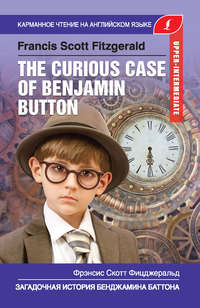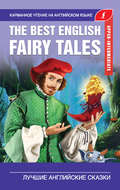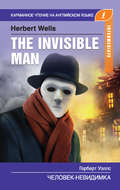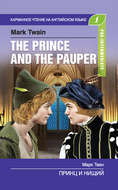Kitabı oxu: «Загадочная история Бенджамина Баттона / The Curious Case of Benjamin Button»
Адаптация текста, комментарии и словарь О.Н. Прокофьевой
«Ночь нежна». Адаптация текста Е.В. Глушенковой
© Глушенкова Е.В., адаптация текста
© Прокофьева О.Н., адаптация текста, коммент. и словарь
© ООО «Издательство АСТ»
The Curious Case of Benjamin Button
by F. Scott Fitzgerald
In 1860 it was proper to be born at home. Now, so I am told, children are usually born in fashionable hospitals. So young Mr. and Mrs. Roger Button were fifty years ahead of style when they decided that their first baby should be born in a hospital. Whether it played any role in the astonishing story I am about to tell we will never know.
I shall tell you what happened, and let you judge for yourself.
The Roger Buttons held a high position, both social and financial, in Baltimore. This was their first baby—Mr. Button was naturally nervous. He hoped it would be a boy1 so that he could be sent to Yale College in Connecticut, the institution to which Mr. Button himself had been once sent.
On that September morning he got up at six o’clock, dressed himself, and hurried to the hospital. When he was approximately a hundred yards from the Maryland Private Hospital for Ladies and Gentlemen he saw Doctor Keene, the family physician, descending the front steps, rubbing his hands together as all doctors do by the unwritten ethics of their profession.
Mr. Roger Button, the president of Roger Button & Co., Wholesale Hardware, began to run toward Doctor Keene. “Doctor Keene!” he called.
The doctor heard him, turned around, and stood waiting, with a curious expression on his harsh, medicinal face.
“What happened?” demanded Mr. Button, as he came up in a rush. “How is she? A boy? Who is it?” Doctor Keene seemed somewhat irritated.
“Is the child born?” begged Mr. Button.
Doctor Keene frowned. “Why, yes, I suppose so…”
“Is my wife all right?”
“Yes.”
“Is it a boy or a girl?”
“I’ll ask you to go and see for yourself!” Then he turned away muttering: “Do you imagine a case like this will help my professional reputation? One more would ruin me—ruin anybody.”
“What’s the matter? Triplets?2” “No, not triplets! You can go and see for yourself. And get another doctor. I’m through with you! I don’t want to see you or any of your relatives ever again! Goodbye!”
Without another word he climbed into his carriage and drove away.
Mr. Button stood there trembling from head to foot3. He had suddenly lost all desire to go into the Maryland Private Hospital for Ladies and Gentlemen—it was with the greatest difficulty that, a moment later, he forced himself to mount the steps and enter the front door.
A nurse was sitting behind a desk in the hall. Swallowing his shame, Mr. Button approached her.
“Good-morning. I—I am Mr. Button.”
A look of terror spread over the girl’s face.
“I want to see my child,” said Mr. Button.
The nurse gave a little scream. “Oh—of course!” she cried hysterically. “Upstairs. Right upstairs. Go up!”
She pointed the direction, and Mr. Button began to mount to the second floor. In the upper hall he addressed another nurse who approached him. “I’m Mr. Button,” he managed to say. “I want to see my—”
“All right, Mr. Button,” she agreed in a hushed voice. “Very well! But the hospital will never have the ghost of its reputation after—”
“Hurry! I can’t stand this!” “Come this way Mr. Button.”
He went after her. At the end of a long hall they reached a room. They entered. Ranged around the walls were half a dozen rolling cribs.
“Well,” gasped Mr. Button, “which is mine?”
“There!” said the nurse.
Mr. Button’s eyes followed her pointing finger, and this is what he saw. Wrapped in a white blanket, in one of the cribs, there sat an old man apparently about seventy years old. His sparse hair was almost white4, and he had a long smoke-coloured beard. He looked up at Mr. Button with a question in his eyes.
“Is this a hospital joke?
“It doesn’t seem like a joke to us,” replied the nurse. “And that is most certainly your child.”
Mr. Button’s closed his eyes, and then, opening them, looked again. There was no mistake—he was gazing at a man of seventy—a baby of seventy, a baby whose feet hung over the sides of the crib.
The old man suddenly spoke in a cracked voice. “Are you my father?” he demanded. “Because if you are,” went on the old man, “I wish you’d get me out of this place…”
“Who are you?”
“I can’t tell you exactly who I am, because I’ve only been born a few hours—but my last name is certainly Button.”
“You lie!”
The old man turned wearily to the nurse. “Nice way to welcome a new-born child,” he complained in a weak voice. “Tell him he’s wrong, why don’t you?”
“You’re wrong. Mr. Button,” said the nurse. “This is your child. We’re going to ask you to take him home with you as soon as possible.” “Home?” repeated Mr. Button. “Yes, we can’t have him here. We really can’t, you know?”
Mr. Button sank down upon a chair near his son and put his face in his hands. “My heavens!” he murmured, in horror. “What will people say? What must I do?”
“You’ll have to take him home,” insisted the nurse—“immediately!”
“I can’t. I can’t,” he moaned. People would stop to speak to him, and what was he going to say? He would have to introduce this—this creature: “This is my son, born early this morning.” And then the old man would gather his blanket around him and they would go on, past stores, the slave market—for a dark instant Mr. Button wished his son was black—past luxurious houses, past the home for the aged…
“Pull yourself together,” commanded the nurse.
“If you think I’m going to walk home in this blanket, you’re entirely mistaken,” the old man announced suddenly.
“Babies always have blankets.” Mr. Button turned to the nurse. “What’ll I do?”
“Go down town and buy your son some clothes.”
Mr. Button’s son’s voice followed him down into the hall:
“And a cane, father. I want to have a cane.”
“Good-morning,” Mr. Button said, nervously, to the clerk in the Chesapeake Dry Goods Company. “I want to buy some clothes for my child.”
“How old is your child, sir?”
“About six hours,” answered Mr. Button.
“Babies’ supply department in the rear.”
“I’m not sure that’s what I want. It’s—he’s an unusually large-size child. Exceptionally—ah—large.”
“They have the largest child’s sizes.”
“Where is the boys’ department?” inquired Mr. Button. He felt that the clerk must scent his shameful secret.
“Right here.”
“Well—” He hesitated. If he could only find a very large boy’s suit, he might cut off that long and awful beard5, dye the white hair brown, and hide the worst and retain something of his own self-respect—not to mention his position in Baltimore society.
But there were no suits to fit the new-born Button in the boys’ department. He blamed the store, of course—in such cases it is the thing to blame the store.
“How old did you say that boy of yours was?” demanded the clerk curiously.
“He’s—sixteen.”
“Oh, I beg your pardon. I thought you said six hours. You’ll find the youths’ department in the next aisle.”
Mr. Button turned miserably away. Then he stopped, brightened, and pointed his finger toward a dressed dummy in the window display. “There!” he exclaimed. “I’ll take that suit, out there on the dummy.”
The clerk stared. “Why,” he protested, “that’s not a child’s suit. You could wear it yourself!”
“Wrap it up,” insisted his customer nervously. “That’s what I want.”
The astonished clerk obeyed.
Back at the hospital Mr. Button entered the nursery and almost threw the package at his son: “Here’s your clothes.”
The old man untied the package and viewed the contents.
“They look sort of funny to me,” he complained, “I don’t want to be made a monkey of—”
“You’ve made a monkey of me! Put them on—or I’ll—or I’ll spank you.” He swallowed uneasily at the word, feeling nevertheless that it was the proper thing to say.
“All right, father”—this with a grotesque simulation of respect—”you’ve lived longer; you know best. Just as you say.”
As before, the sound of the word “father” confused Mr. Button. “And hurry.”
“I’m hurrying, father.”
When his son was dressed Mr. Button regarded him with depression. The costume consisted of dotted socks, pink pants, and a belted blouse with a wide white collar. Over the collar waved the long beard.
The effect was not good.
“Wait!”
Mr. Button seized a pair of hospital shears and with three quick snaps cut a large section of the beard. But even without it his son was far from perfection. The remaining hair, the watery eyes, the ancient teeth seemed out of tone with the gayety of the costume. Mr. Button, however, held out his hand.
“Come along!” he said sternly.
His son took the hand trustingly. “What are you going to call me, dad?” he quavered as they walked from the nursery—”just ‘baby’ for a while? till you think of a better name?”
Mr. Button grunted. “I don’t know,” he answered harshly. “I think we’ll call you Methuselah.”
Even after the new-born Button had had his hair cut short and then dyed to an unnatural black, had had his face shaved so close that it glistened, and had been dressed in small-boy clothes made to order, it was impossible for Button to ignore the fact that his son was a poor excuse for a first family baby. Benjamin Button—for it was by this name they called him instead of by Methuselah—was five feet eight inches tall. His clothes did not conceal this, nor did the dyeing of his eyebrows disguise the fact that the eyes under were watery and tired. In fact, the baby-nurse left the house after one look at him in a state of considerable indignation.
But Mr. Button persisted that Benjamin was a baby, and a baby he should remain. At first, he declared that if Benjamin didn’t like warm milk he could go without food altogether, but he finally allowed his son bread and butter, and even oatmeal by way of a compromise. One day he brought home a rattle and, giving it to Benjamin, insisted that he should “play with it.” The old man took it with a weary expression and jingled it obediently at intervals throughout the day.
There can be no doubt that the rattle bored him, and that he found other amusements when he was left alone. For instance, Mr. Button discovered one day that some cigars were missing. A few days later he found the room full of faint blue haze and Benjamin, with a guilty expression on his face6, trying to hide the butt.
This, of course, called for a severe spanking, but Mr. Button found that he could not do it.
Nevertheless, he persisted in his attitude. He brought home lead soldiers, he brought toy trains, he brought large pleasant animals made of cotton, and, to perfect the illusion, which he was creating—for himself at least—he passionately demanded of the clerk in the toy store whether “the paint would come of the pink duck if the baby put it in his mouth.” But Benjamin refused to be interested. He would steal down the back stairs and return to the nursery with a volume of the Encyclopedia Britannica7, which he would read through an afternoon, while his cotton cows were left neglected on the floor. Mr. Button could do nothing against such stubbornness.
The sensation was, at first, huge in Baltimore. But the outbreak of the Civil War drew the city’s attention to other things. A few people who tried to be polite about the child finally declared that the baby resembled his grandfather. Mr. and Mrs. Roger Button were not pleased, and Benjamin’s grandfather was furiously insulted.
Benjamin, once he left the hospital, took life as he found it. Several small boys were brought to see him, and he spent all afternoon trying to work up an interest in tops and marbles—he even managed, quite accidentally, to break a kitchen window with a stone from a sling shot, which secretly delighted his father.
Thereafter Benjamin decided to break something every day, but he did these things only because they were expected of him, and because he was by nature obliging. When his grandfather’s initial antagonism wore off, Benjamin and that gentleman took enormous pleasure in one another’s company. They would sit for hours, these two, so different in age and experience, and, like old friends, discuss with tireless monotony the slow events of the day. Benjamin felt more at ease in his grandfather’s presence than in his parents’—they seemed always somewhat afraid of him and, despite their dictatorial authority, frequently addressed him as “Mr.”
He was as puzzled as anyone else at the advanced age of his mind and body at birth. He read up on it in the medical journal, but found that no such case had been previously recorded.
When he was five, he was sent to kindergarten, where he was taught the art of pasting green paper on orange paper, of weaving coloured maps and manufacturing eternal cardboard necklaces. He often fell asleep in the middle of these tasks, a habit, which both irritated and frightened his young teacher. To his relief she complained to his parents, and he was removed from the school. The Roger Buttons told their friends that they felt he was too young.
By the time he was twelve years old his parents had grown used to him. Moreover, they no longer felt that he was different from any other child—except when some curious anomaly reminded them of the fact. But one day a few weeks after his twelfth birthday, looking in the mirror, Benjamin made, or thought he made, an astonishing discovery. Did his eyes deceive him, or had his hair turned from white to iron-gray under its dye? Was the network of wrinkles on his face fade? Was his skin healthier and firmer? He could not tell. He knew that his physical condition had improved since the early days of his life.
“Can it be—?” he thought to himself, or, rather, scarcely dared to think.
He went to his father. “I am grown,” he announced. “I want to put on long trousers.”
His father hesitated. “Well,” he said finally, “I don’t know. Fourteen is the age for putting on long trousers—and you are only twelve.” “But I’m big for my age.”
“Oh, I’m not so sure of that,” he said. “I was as big as you when I was twelve.”
This was not true—it was all part of Roger Button’s silent agreement with himself to believe in his son’s normality.
Finally a compromise was reached. Benjamin was to continue to dye his hair8. He was to make a better attempt to play with boys of his own age. He was not to wear his spectacles or carry a cane in the street. In return he was allowed his first suit of long trousers.
Of Benjamin Button’s life between his twelfth and twenty-first year I intend to say little. They were years of normal ungrowth. When Benjamin was eighteen he reminded of a man of fifty; he had more hair and it was of a dark gray; his step was firm, his voice had lost its cracked quaver and turned into a healthy baritone. So his father sent him up to Connecticut to take examinations for entrance to Yale College. Benjamin passed his examination and became a member of the freshman class.
On the third day after his matriculation he received a notification from Mr. Hart, the college registrar, to call at his office and arrange his schedule. Benjamin, glancing in the mirror, decided that his hair needed a new application of its brown dye, but suddenly he saw that the dye bottle was not there. Then he remembered he had emptied it the day before and thrown it away. He was due at the registrar’s in five minutes. There seemed to be no help for it. He must go as he was. He did.
“Good-morning,” said the registrar politely. “You’ve come to inquire about your son.”
“Why, as a matter of fact, my name’s Button—” began Benjamin, but Mr. Hart cut him off.
“I’m very glad to meet you, Mr. Button. I’m expecting your son here any minute.”
“That’s me!” burst out Benjamin. “I’m a freshman.”
“What!”
“I’m a freshman.”
“Surely you’re joking.”
“Not at all.”
The registrar frowned and glanced at a card before him.
“Why, I have Mr. Benjamin Button’s age down here as eighteen.” “That’s my age,” asserted Benjamin, flushing slightly9.
The registrar eyed him wearily. “Now surely, Mr. Button, you don’t expect me to believe that.10”
Benjamin smiled wearily. “I am eighteen,” he repeated.
The registrar pointed to the door. “Get out,” he said. “Get out of college and get out of town. You are a dangerous lunatic.”
“I am eighteen.”
Mr. Hart opened the door. “The idea!” he shouted. “A man of your age trying to enter here as a freshman. Eighteen years old, are you? Well, I’ll give you eighteen minutes to get out of town.”
Benjamin Button walked with dignity from the room, and the under – graduates, who were waiting in the hall, followed him curiously with their eyes. Benjamin turned around, faced the registrar, who was still standing in the doorway, and repeated in a firm voice: “I am eighteen years old.”
He hoped it would be a boy—Он надеялся, это будет мальчик
[Закрыть]
What’s the matter? Triplets?—В чем дело? Тройня?
[Закрыть]
trembling from head to foot—дрожа от головы до ног
[Закрыть]
his sparse hair was almost white—его редкие волосы были почти белыми
[Закрыть]
he might cut off that long and awful beard—он мог бы отрезать ту длинную и ужасную бороду
[Закрыть]
with a guilty expression on his face—с виноватым выражением лица
[Закрыть]
He would steal down the back stairs and return to the nursery with a volume of the Encyclopedia Britannica—Он прокрадывался вниз по чёрной лестнице в детскую комнату с томиком энциклопедии «Британника»
[Закрыть]
Benjamin was to continue to dye his hair.—Бенджамин должен был продолжать красить свои волосы.
[Закрыть]
flushing slightly—слегка краснея
[Закрыть]
Now surely, Mr. Button, you don’t expect me to believe that.—Мистер Баттон, Вы, конечно, не ожидаете, что я поверю в это.
[Закрыть]








